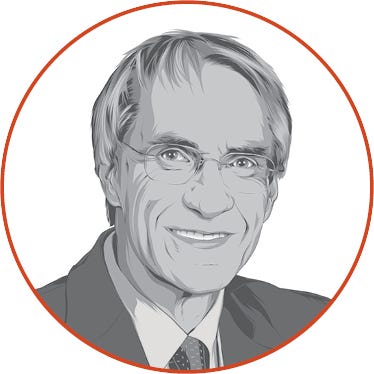
Throughout the year, I have many unique experiences and travels, but one special event is held in my old stomping grounds of upstate New York, the New York Agricultural Banker and Lender Conference. This event holds fond memories for me as five decades ago, while I was in graduate school, this was one of my first speaking engagements. In addition, today I am the only remaining connection to the event’s founders and beginning years.
This year, due to a myriad of flight issues, I was fortunate enough to attend a rewarding afternoon farm tour with some of the bankers. We visited Byrne Dairy, a fourth-generation, value-added business much like our creamery in Virginia. And it was interesting to see how consumer trends are impacting the business model. For example, all 270 dairy farms represented at the conference were certified for animal welfare standards by the state of New York. Of course, consumers are providing preferences for particular products and services like the certification, and then, businesses like Byrne’s Dairy are adapting accordingly.
In addition to embracing changing consumer trends, Byrne’s is a prime example of how public and private entities can work together to accomplish mutually beneficial goals. The waste generated from their dairy is disposed of through a public plant, which then in turn creates electricity. In the future, I expect more cooperation with private and private public entities, especially from progressive, proactive operations like Byrne Dairy.
My visit was also eye-opening to the transition and consolidation of the industry. While at Cornell for graduate school, I visited a number of dairy farms as part of a farm management class. Of the 19 dairy farms I studied, only two remain. However, there are approximately the same number of cows overall.
On the financial side, the dairy industry remains in an extended depression, and I asked how this dairy was maintaining its profits. Well, the producer indicated that this best management practice was his wife and CFO. Together, they intensely monitor the financials and in some cases conduct reviews twice per month. He stated that this review allows them to implement little tweaks in systems management and production operations that combat rising costs. In short, they continually drive towards efficiency.
The producer also shared that one of his toughest decisions was eliminating his son from the operation. Although difficult, he knew that without his departure, neither of them would be able to maintain any quality of living, short or long term. In the end, the decision was favorable for both parties. His son now works in waste management in a position that really complements his natural talents and passion, unlike the dairy business.
While I was excited to attend New York’s conference, this unexpected field trip became one of the highlights of my trip. I look forward to returning next year to see the progress of Byrne and the state’s other dairy farms.
P.S. This producer shared that his father always encouraged his brother and him to milk highly productive cows on quality ground. Ten years ago, the brothers took the operation to the next level, investing in an extremely efficient building complex. This step reduced employee turnover, but not labor costs. However, they did realize overall cost savings and as well as increased profitability because of the improved systems management of the complex.
About the Author(s)
You May Also Like






